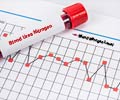Theophylline Medication Information
Learn everything you need to know about Theophylline-pronunciation, uses, dosage guidelines, indications, and when to take or avoid it.
Get up-to-date information on side effects, precautions, warnings, and proper storage to ensure safe usage.
Explore Theophylline brand names commonly used in India and internationally, along with detailed pricing information. Consult your healthcare provider for tailored medical advice.
Generic Name : Theophylline Pronunciation : the off i lin ICD Code : Y55.6 Therapeutic Classification : Anti- AsthmaticsBrand Names or Trade Names of Theophylline
India :
International :
Aquaphyllin, Asmalix, Bronkodyl, Elixophyllin, Quibron-T, Slo-Phyllin, Theoclear-80, Theolair, Theosol-80, Truxophyllin
Why is Theophylline Prescribed? (Indications)
This medication is a bronchodilator, prescribed for asthma, chronic bronchitis, emphysema, and other lung diseases. It works by relaxing the muscle around the airways in the lungs.When should Theophylline not be taken? (Contraindications)
Hypersensitivity.What is the dosage of Theophylline?
The recommended dose is 400 or 600 mg once a day in the morning or evening.How should Theophylline be taken?
It comes as a tablet and capsule to take by mouth with or without food.What are the warnings and precautions for Theophylline?
• Caution should be exercised in patients with history of seizures, ulcers, heart disease, overactive thyroid, high blood pressure, liver disease, alcoholism, any allergy, who are taking other medications, during pregnancy and breastfeeding.• Avoid alcohol consumption.
• Avoid taking large amount of caffeinated beverages.
• It may affect blood sugar level; monitor sugar level regularly while taking this medication.
What are the side effects of Theophylline?
Serious effects - Death.Most Common - Nausea, vomiting, headache, and sleeplessness.
Gastrointestinal - Abdominal pain, diarrhea and blood vomiting.
Metabolic - Decrease in blood potassium level and increase in sugar.
Heart - Fast heart rate and low blood pressure/shock.
Central Nervous System - Nervousness, tremors, disorientation and seizures.












